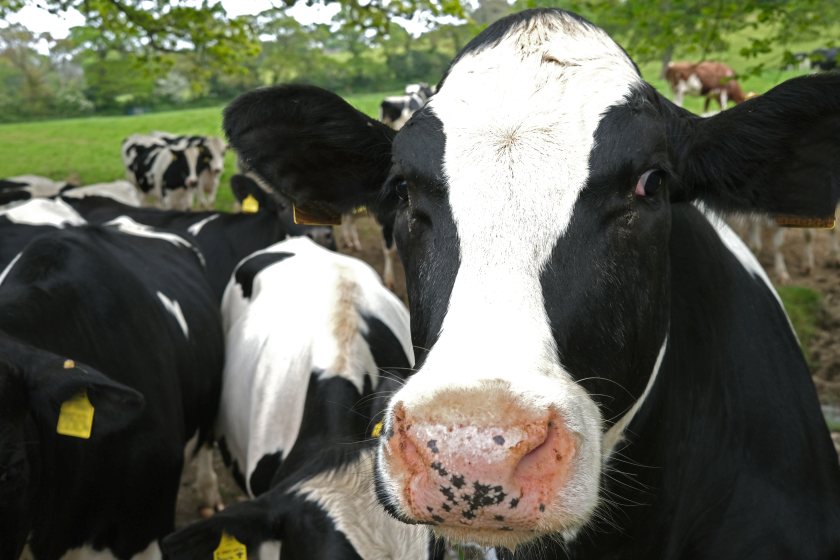
Vaccination not only reduces the severity of bovine TB in infected cattle, but it also reduces its spread in dairy herds by 89%, new research finds.
The results are set to improve prospects for the elimination and control of bTB, an infectious disease that results in large economic costs and health impacts.
It is the first study to show that Bacillus Calmette-Guérin (BCG)-vaccinated cattle infected with TB are substantially less infectious to other cattle.
This remarkable indirect effect of the vaccine beyond its direct protective effect has not been measured before.
The spillover of infection from livestock has been estimated to account for about 10% of human tuberculosis cases.
While such zoonotic TB (zTB) infections are most commonly associated with gastro-intestinal infections related to drinking contaminated milk, zTB can also cause chronic lung infections in humans.
Lung disease caused by zTB can be indistinguishable from regular tuberculosis, but is more difficult to treat due to natural antibiotic resistance in the cattle bacteria.
TB remains endemic in many countries around the world, including in Europe and the Americas, where its control costs farmers and taxpayers hundreds of millions of pounds each year.
In the study, led by the University of Cambridge and Penn State University, researchers examined the ability of the vaccine, BCG, to directly protect cattle that receive it, as well as to indirectly protect both vaccinated and unvaccinated cattle by reducing TB transmission.
Vaccinated and unvaccinated animals were put into enclosures with naturally infected animals, in a novel crossover design performed over two years.
Andrew Conlan, associate professor of epidemiology at Cambridge, said that vaccinated cows developed significantly fewer visible signs of TB than unvaccinated ones.
"This suggests that the vaccination not only reduces the progression of the disease, but that if vaccinated animals become infected, they are substantially less infectious to others."
Professor James Wood, also from Cambridge, noted that despite TB being more prevalent in lower-income countries, the UK, Ireland and New Zealand also experience considerable economic pressures from the disease.
He said: “For over twenty-years the UK government has pinned hopes on cattle vaccination for bovine tuberculosis as a solution to reduce the disease and the consequent costs of the controls.
"These results provide important support for the epidemiological benefit that cattle vaccination could have to reduce rates of transmission to and within herds.”
